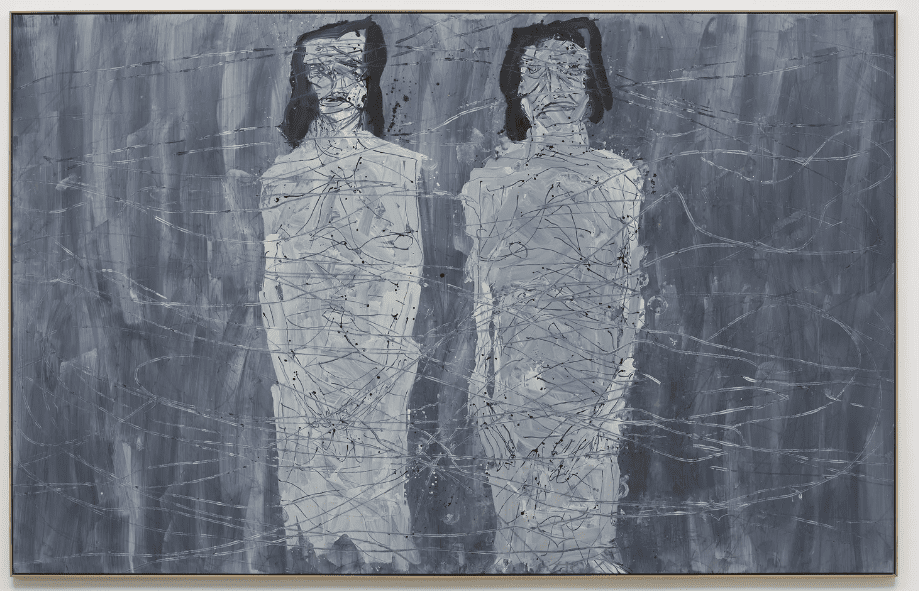Nothing if not ambitious, the scope of Klive's debut album overwhelms.
Originally self-released in 2008, Klive's Sweaty Psalms is now enjoying a European release via Mille Plateaux, offering something of an edgier, instrumental take on Icelandic folktronica for Sigur Ros fans seeking to delve deeper into the twisted soundscapes which surface briefly in the latter's album Taak…. Klive, born Ulfur Hannson, is a member of the Jonsi's (Sigur Ros' Vocalist) touring band, and whilst the experience post-dates Sweaty Psalms there is a definite influence on the album (mainly in the orchestration of brass instruments/VSTs) which is very reminiscent of his employer's work.
Soundtracking Iceland must be a daunting process. Expecting an artist to attempt to do so, simply because they are from there, is probably a heinous act of cultural imperialism. After all, we do not expect to hear the essence of England portrayed by Robbie Williams simply because of his birthplace. Nevertheless, the Icelandic acts with whom the wider world are acquainted – Bjork, Sigur Ros, Jonsi – consistently produce music which at the very least, seems permeated with a sense of place which is particularly Icelandic. Projection it may be, but it is difficult not to hear the echoes of volcanic landscapes, vast glaciers, wild seas, long nights and underworld skullduggery in those works, and something of that otherness is evident in Sweaty Psalms too.
This is laudable, no credible artist with ambitions to the front-line of musical advancement has any excuse for using commercially available soundbanks.
Unfortunately, what is also evident is a musical vision which, whilst wildly ambitious in its textures and tones, is too personal to be of any great relevance to the casual listener. Hannson's public exercises in how far he can push the limits of Western diatonic harmony feel more like something best kept for the privacy of his practise room. On an album which is simply too long and diverse to accurately sum up as a unit, the mood of the songs swings repeatedly between perverse tonal contrasts and flaccid ambient loops without any obvious hook. Presumably the idea of a hook is too much of a trite and unoriginal technique, and too predictable to earn a place on this experimental album, but without them all that remains is textures and tones without substance.
The flatulent horn samples which pepper the album are the main vehicle for Hannson's tonal ambitions. Never harmonising quite exactly, always just short of a full note, they drill away discordantly. Used sparingly, the approach can lend a quirky point of focus to a song, a contrast to the rest of the piece. Klive gives no such basis for contrast – bashing away instead on a scheme which doubtless makes perfect sense to himself, but is merely irritating to anyone else. Perhaps everyone else in the world is just too old/staid/uncultured to appreciate the strides he is making, or perhaps the Emperor is simply not wearing clothes.
There are times when the textures and soundscapes are pleasing. At twelve tracks long, this is almost a double-album, and like most double-albums, has about one decent album's worth of material in it. When the countless independent elements of his more challenging sound sculptures ('Don't Give up the Ghost', 'Sundance' 'Langoliers') coalesce to form something recognisable as a song, the effect is satisfying. It's not quite that these instances are rare, but there is a nagging feeling that when they do happen, they are slightly forced, as if they've been deliberately layered onto the composition as a moment of light relief but are not quite integrated into the rest of the song.
On the more accessible tracks such as 'Wailing Corpuscles' and 'Panacea', the opposite is the case – the obviously ambient tracks bring little new to the subgenre. True, there are none of the blatant cliches of ambient – the waterfall; the passing train; the distant playground, but it's difficult not to expect them in the otherwise predictable structures. To his credit, Hannson appears to use his own field recordings to bring texture and mood to the album, dropping in sounds of lapping water, insect noises and suchlike. This is laudable, no credible artist with ambitions to the front-line of musical advancement has any excuse for using commercially available soundbanks.
There are high points. 'Lomavatn' is a slow-building bassy thumper, with a maxed-out clarinet melody slightly bringing to mind Dire Straits' manic intro to 'Money for Nothing', although there the resemblance stops. The plashing water and frog noises reflect the track's title ('vatn' is Icelandic for 'lake'). 'Panacea' goes some way to reflecting its title too, offering a fresh and icy Arctic house tableau which soothes away the frustration of too much time spent trying to grasp at a musical vision which Klive seems determined to obfuscate every time it comes into focus. The title track, 'Sweaty Psalms' is a beauty, with a densely populated microcosm of sounds, grooves, glitches and emotions packed around a sweetly pumping bassline, whilst the fey, guileful female vocal on 'Common Wealth' brings a witch-house cohesion to a busy percussive track.
No lack of substance to the album then, if anything the record packs too much in. Ambitious, bold, singular – all good things in moderation. At other times, it seems wilfully obtuse and unapproachable. Listened to in sequence, as an album, it is a rich brew indeed, with soothing moments interspersed amongst the tonal and percussive intensity of the more eclectic sections. Whether the balance of those elements is quite right depends upon the tastes of the listener.
Klive – Sweaty Psalms is out now on Mille Plateaux.

An observer first and foremost, Sean Keenan takes what he sees and forges words from the pictures. Media, critique, exuberant analysis and occasional remorse.













